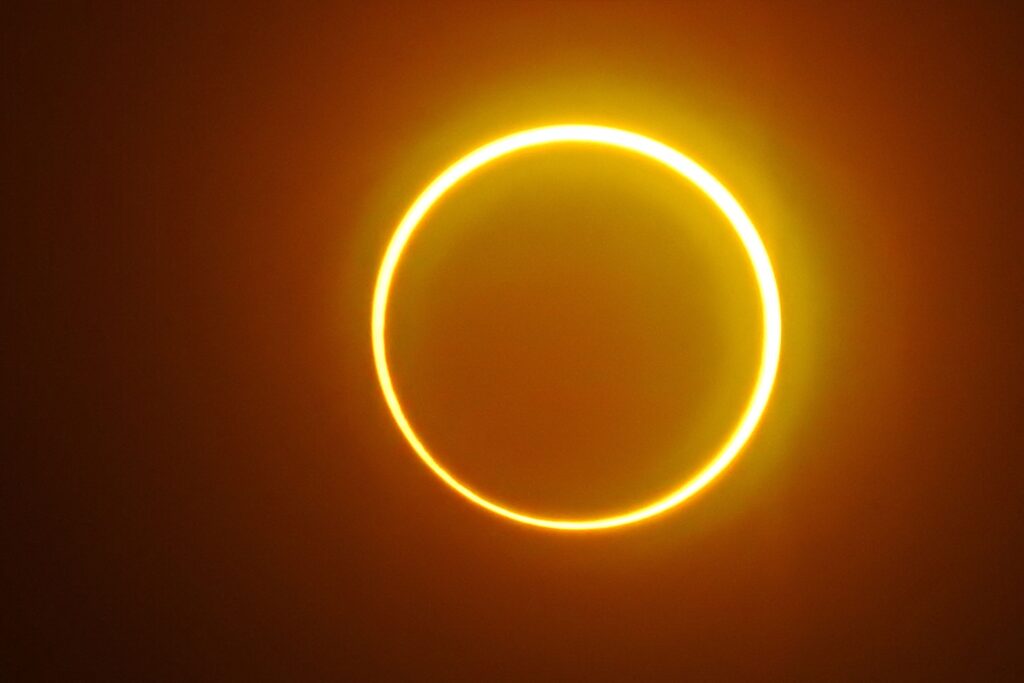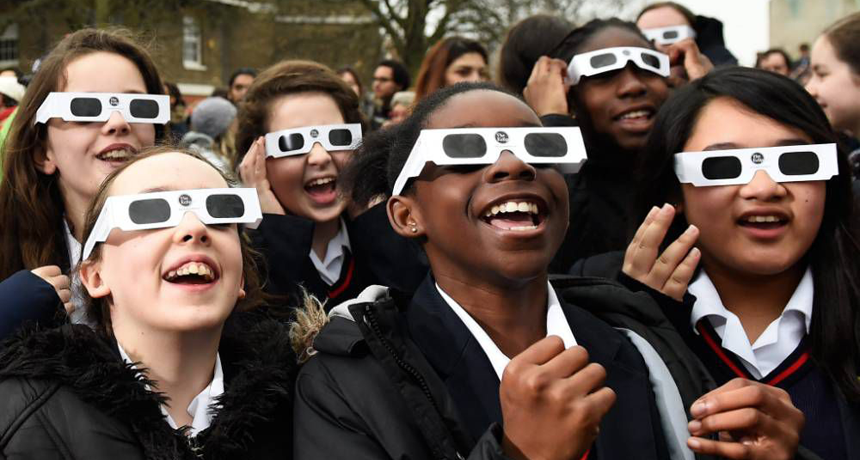Myths and Superstitions Surrounding Solar Eclipses in India
Solar eclipses have fascinated people for centuries, and they have also given rise to many myths and superstitions around the world. In India, solar eclipses are considered to be inauspicious and are associated with various beliefs and practices. Here are some of the most common myths and superstitions surrounding solar eclipses in India:

- The Sun is being swallowed by a demon: According to ancient Indian mythology, solar eclipses occur when Rahu and Ketu, two evil demons, swallow the Sun, snuffing out its life-giving light. Devout Hindus believe it to be a bad omen.
- Pregnant women should not go outside: It is believed that pregnant women should not go outside during a solar eclipse, as it can harm the unborn child. They should also avoid using sharp objects or cutting anything during this time.
- Temples are closed during eclipses: Many temples in India close their doors during a solar eclipse, as it is considered to be an inauspicious time for worship. The idols are also washed with Ganga water to purify them after the eclipse ends.
- Food should not be consumed during an eclipse: It is believed that food should not be consumed during a solar eclipse, as it can cause illness. People usually fast during this time or eat only after the eclipse has ended.

- Water becomes impure during an eclipse: It is believed that water becomes impure during a solar eclipse and should not be used for drinking or cooking. People usually store water before the eclipse or purify it with Tulsi leaves.
- Chanting mantras can protect you: Many people believe that chanting mantras or reciting prayers during a solar eclipse can protect them from negative energies and evil spirits.
- Sutak period: Sutak is a period of time before and after a solar eclipse when many activities are prohibited, such as cooking, eating, sleeping, and even breathing deeply. It is believed that negative energies are at their peak during this time.
While these beliefs may seem superstitious to some, they are deeply ingrained in Indian culture and have been passed down from generation to generation. However, there is no scientific evidence to support these claims.
Solar eclipses are natural phenomena that occur when the Moon passes between the Sun and Earth, casting a shadow on parts of the Earth’s surface. They are not omens of doom or signs of impending disaster.
If you want to watch a solar eclipse safely, you should use special glasses or filters that block most of the Sun’s rays. You can also use a pinhole projector or a telescope with a solar filter to project the image of the Sun onto a screen or wall.

While solar eclipses may be awe-inspiring events that capture our imagination, we should embrace them as natural wonders of our universe.








